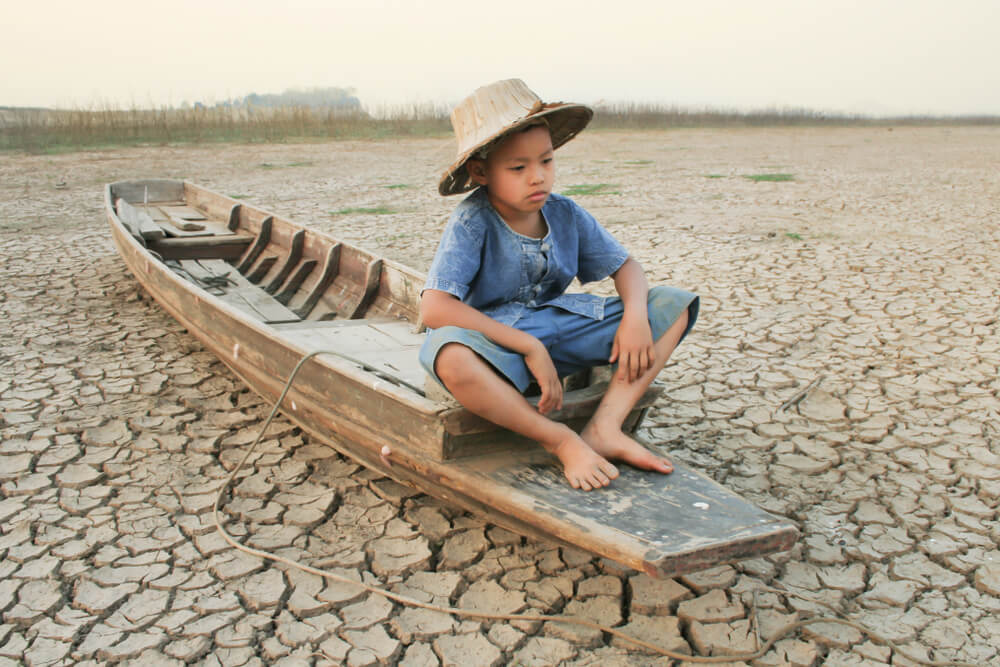Birthstrikers, the Women who Refuse to Have Children

Over time there’s been a large number of couples who’ve taken the decision not to have children. Reasons for this have included unemployment, inequality, inflation, and the exuberant prices of academic education.
However, today there’s a new reason for not procreating. It concerns the environmental crisis. This involves the fact that natural resources have been wasted in an excessive way. Furthermore, that environments have become increasingly polluted.
This is demonstrated by one of the most recent studies by the World Health Organization. It revealed that nine out of ten people breathe harmful air. In addition, the study asserted that year after year more than five million people die from health problems unleashed by the environmental crisis.
Added to this, the Organisation for Economic and Co-operation and Development (OECD) predictions have shown that, by 2050, greenhouse gases may increase by up to 50 percent. These figures also suggest that, if the current rate is maintained, by 2050, air pollution will be the primary cause of premature death.

Birthstrikers, the women who don’t want children
For these reasons, they created the organization BirthStrike. This is a group of women and men who’ve all made the decision not to have children due to the environmental situation. They’ve taken this decision because they believe that their children would be exposed to water shortages, constant fires, and devastating climates.
What the group seeks to communicate to people is that in order for our children to enjoy a decent future, our habits need to change. In fact, their initiative has increasingly found support from many couples around the world.
As a matter of fact, on a day-to-day basis, industries continue to use the kinds of techniques that generate pollution, fell trees, and contaminate wastewater. For this reason, the members of Birthstrike remain firm in their convictions.
“I’d like to start a family with my partner, but I don’t feel like this is the time to do it,” claims Blythe Pepino. She’s the British woman who created BirthStrike.

However, the movement has explained that it isn’t against people who decide to be parents. In fact, they state that their fight is also for them. That’s because their aim is for the entire population to change their actions so that the children of the future are not left adrift.
Today, the group is continuing to attract new members as well as spreading their thinking via the web. In addition, they call on governments around the world to begin taking urgent action to reverse the consequences of climate change.
The actions needed to mitigate climate change
Climate change is a phenomenon that people can counteract if they change some of their daily habits.
In the first place, experts recommend using the bicycle as a means of transport to get around. This is because bikes don’t emit CO2 and don’t contaminate the air.

Secondly, it’s essential that people save energy in their homes. That’s because, when appliances are left plugged in unnecessarily, they continue to produce gases that pollute the environment.
Finally, recycling must be encouraged. In this way, the useful life of products is extended. In addition, raw materials aren’t wasted unnecessarily. Likewise, recycling means less usage of landfills and the emission of gases. These gases cause an excessive increase in temperatures.
All cited sources were thoroughly reviewed by our team to ensure their quality, reliability, currency, and validity. The bibliography of this article was considered reliable and of academic or scientific accuracy.
- Estrada Paneque, A., Gallo González , M., & Nuñez Arroyo, E. (2016). Contaminación ambiental, su influencia en el ser humano, en especial: el sistema reproductor femenino. Universidad y Sociedad [seriada en línea], 8 (3). pp. 80 -86.
- OCDE. Perspectivas ambientales de la OCDE hacia 2050 [Internet]. Paris: OCDE; 2012 [citado 23 de agosto de 2021]
This text is provided for informational purposes only and does not replace consultation with a professional. If in doubt, consult your specialist.








